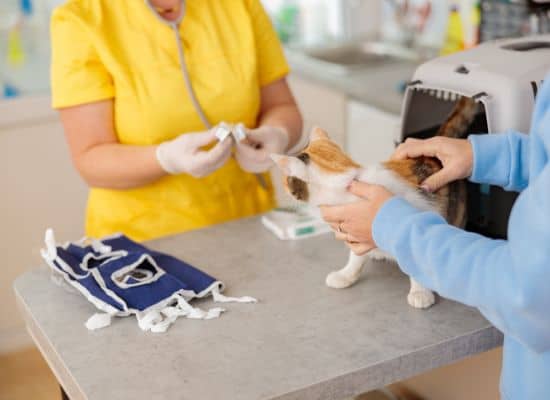Travelling with pets within the European Union (EU) involves a set of complex regulations that pet owners must adhere to. This article aims to demystify these rules, offering a comprehensive guide to ensure that your pet’s journey is as smooth as possible. Whether you’re relocating or simply going on holiday, understanding the EU’s pet importation and quarantine regulations is crucial for a stress-free experience.
Why Do Pets Need Appropriate Documentation and Why Are There Quarantine Requirements?
The EU has stringent regulations in place to ensure the health and safety of both animals and humans. Proper documentation is required to confirm that your pet is healthy, vaccinated, and free from contagious diseases. Quarantine, on the other hand, serves as an additional layer of protection, helping to prevent the spread of diseases that may not be immediately detectable. Both these measures are essential for maintaining public health and ensuring that pets can travel safely between countries.
Importing Dogs to the European Union
Required Permits and Documentation
When importing dogs into the European Union, you’ll need to ensure that you have the following documents and permits:
- EU Pet Passport: This is a document that contains all the relevant information about your dog, including vaccination records.
- Microchip: Your dog must be microchipped with an ISO 11784/11785 compliant 15-digit pet microchip.
- Rabies Vaccination: A valid rabies vaccination is mandatory. The vaccination must be administered at least 21 days before travel but not older than 12 months.
- Tapeworm and Tick Treatment: For certain countries, a treatment for tapeworm and ticks 24 to 120 hours before entering is required.
- Veterinary Certificate: A certified vet must examine your dog and issue a health certificate stating that the dog is fit for travel.

Dog Quarantine Requirements
Quarantine regulations can vary from one EU country to another, but generally, dogs may be subject to quarantine if:

- Incomplete Documentation: If any of the required documents are missing or incomplete.
- Suspected Illness: If the dog shows signs of illness upon arrival.
- Non-compliance with Rabies Vaccination: If the rabies vaccination is not up to date or was administered incorrectly.
It’s crucial to check the specific quarantine requirements of the EU country you are travelling to, as failing to comply could result in a lengthy and stressful quarantine period for your dog.
Importing Cats to the European Union
Required Permits and Documentation
If you’re planning to bring your cat into the European Union, you’ll need to prepare the following permits and documents:
- EU Pet Passport: This document is essential for travel within the EU and contains details like your cat’s vaccination records.
- Microchip: Your cat must have a 15-digit ISO 11784/11785 compliant microchip for identification.
- Rabies Vaccination: A valid rabies vaccination is required. The vaccination should be administered at least 21 days before travel and should not be older than 12 months.
- Veterinary Certificate: A certified veterinarian must issue a health certificate stating that your cat is healthy and fit for travel.
- Tapeworm and Tick Treatment: While this is not mandatory for cats, some countries may require it, so it’s best to check the specific requirements of the country you’re travelling to.

Cat Quarantine Requirements
The quarantine requirements for cats vary among EU countries, but generally, your cat may be subject to quarantine for:

- Incomplete Documentation: Missing or incomplete documents can lead to your cat being quarantined.
- Signs of Illness: If your cat shows any signs of illness upon arrival, it may be placed in quarantine.
- Non-compliance with Rabies Vaccination: If the rabies vaccination is not up to date or was administered incorrectly.
It’s essential to consult the specific quarantine regulations of the EU country you’re travelling to, as non-compliance could result in an extended quarantine period for your cat.
Importing Birds to the European Union
Required Permits and Documentation
If you’re considering importing birds into the European Union, you’ll need to ensure you have the following permits and documentation:
- EU Avian Passport: Similar to the pet passport but specifically for birds, this document contains all the necessary health and vaccination records.
- Microchip or Leg Ring: Birds should have an identification microchip or a leg ring that complies with ISO standards.
- Health Certificate: Issued by a certified veterinarian, this certificate should confirm that the bird is free from diseases like Avian Influenza and Newcastle Disease.
- CITES Permit: For endangered species, a Convention on International Trade in Endangered Species (CITES) permit is mandatory.
- Import Permit: Some EU countries may require an import permit that needs to be obtained in advance.

Bird Quarantine Requirements
Quarantine regulations for birds in the European Union can vary by country, but generally, you may expect the following:

- Health Inspection: Upon arrival, birds are usually inspected for any signs of illness. If any are found, the bird may be quarantined.
- Disease Testing: Birds may be tested for diseases like Avian Influenza or Newcastle Disease. If tested positive, they will be quarantined.
- Incomplete Documentation: If any of the required documents are missing or incomplete, your bird may be placed in quarantine until the issue is resolved.
It’s crucial to check the specific quarantine regulations of the EU country you’re importing your bird to, as each country may have its own set of rules and requirements.
Importing Exotic Pets to the European Union
Required Permits and Documentation
Importing exotic pets into the European Union requires a stringent set of permits and documentation to ensure both the safety of the animal and public health. Here’s what you’ll generally need:
- EU Exotic Pet Passport: This document contains all the relevant health and vaccination records for your exotic pet.
- Microchip: All exotic pets must be microchipped for identification, and this should comply with ISO 11784/11785 standards.
- Health Certificate: A certified veterinarian must issue a health certificate stating that the pet is free from contagious diseases.
- CITES Permit: For exotic pets that are endangered or protected species, a Convention on International Trade in Endangered Species (CITES) permit is mandatory.
- Import Permit: Some EU countries may require an additional import permit, which should be obtained in advance.
- Proof of Ownership: Documents proving you are the legal owner of the pet.

Exotic Pet Quarantine Requirements
The quarantine requirements for exotic pets can vary significantly between EU countries, but here are some general guidelines:

- Health Inspection: Upon arrival, a thorough health inspection will be conducted. If your pet shows signs of illness, it may be placed in quarantine.
- Disease Testing: Depending on the species, your pet may be tested for specific diseases. A positive result will lead to quarantine.
- Duration: The length of the quarantine period can vary and may last from a few weeks to several months, depending on the country and the pet’s health condition.
It’s essential to consult the specific regulations of the EU country you are moving to, as each has its own set of rules and requirements for importing exotic pets.
How to Avoid Pet Quarantine in the European Union
Avoiding pet quarantine in the European Union is a matter of thorough preparation and strict adherence to the guidelines set by the specific EU country you are travelling to. Here are some tips to help you avoid quarantine:
- Early Planning: Start the process early to ensure all vaccinations and tests are up-to-date.
- Consult a Veterinarian: A certified vet can guide you through the necessary health checks and vaccinations.
- Understand Country-Specific Rules: Each EU country may have its own set of rules. Make sure you are familiar with these.
- Complete Documentation: Ensure all required permits, health certificates, and other documents are in order.
- Direct Flights: Whenever possible, choose a direct flight to reduce stress on your pet and lessen the chance of quarantine due to layovers in countries with different regulations.
- Pre-Arrival Inspection: Some countries offer a pre-arrival inspection, which, if passed, can help you avoid quarantine.
How to Choose the Right Pet Travel Agency for Your Pet’s Travels to the European Union
Selecting the right pet travel agency is crucial for a smooth and stress-free experience when travelling to the European Union. Here are some factors to consider:
- Experience: Choose an agency with a track record of successfully transporting pets to the EU.
- Services: Look for agencies that offer comprehensive services, including document preparation, flight booking, and even quarantine arrangements if needed.
- Consultation: A good agency will offer a consultation to discuss your specific needs and concerns.
- Reviews and Testimonials: Check online reviews and ask for testimonials to gauge the agency’s reputation.
- Transparency: The agency should provide a clear and detailed quote, outlining all the services included.
- Accreditations: Ensure the agency has the necessary accreditations and complies with international pet travel standards.
By taking these factors into account, you can make an informed decision and ensure a safe and comfortable journey for your pet.
Why Choose Petport for Your Pet’s Travel Needs?
Choosing Petport for your pet’s travel needs is a decision you won’t regret. With years of experience in the industry, we offer a comprehensive range of services designed to make your pet’s journey as smooth as possible. Here’s why Petport stands out:
- Expertise: Our team is well-versed in international pet travel regulations, including those specific to the European Union.
- One-Stop Service: From documentation to quarantine arrangements, we handle it all.
- Personalised Care: Each pet receives individual attention and care tailored to their needs.
- Transparency: No hidden fees or surprises; we provide a detailed quote upfront.
- Accreditations: We are fully accredited and comply with all international pet travel standards.
- Customer Reviews: Our excellent customer reviews speak volumes about our quality of service.
- 24/7 Support: We offer round-the-clock support to address any concerns or emergencies.
- Safety First: The safety and well-being of your pet are our top priorities.
Choose Petport for a hassle-free and comfortable travel experience for your pet.
FAQ Documentation and Quarantine the European Union
What documents are required for pet travel to the EU?
The primary documents required include a pet passport, a microchip for identification, and a valid rabies vaccination certificate. Some countries may also require additional health certificates or permits.
How long is the quarantine period in the EU?
The quarantine period can vary depending on the country within the EU. Some countries may not require quarantine if all health requirements are met.
Can I travel with more than one pet?
Yes, you can travel with more than one pet, but each pet must have its own set of documentation and meet the individual country’s import regulations.
Are there breed restrictions for dogs?
Some EU countries have breed restrictions. It’s essential to check the specific regulations for the country you are travelling to.
What is the process for avoiding quarantine?
Avoiding quarantine generally involves meeting all the health and documentation requirements before travel. Some countries offer pre-arrival inspections to bypass quarantine.
Can Petport assist with last-minute travel plans?
While we recommend planning well in advance, Petport can assist with last-minute arrangements depending on the destination and availability.
Do you offer pet travel insurance?
Yes, we offer comprehensive pet travel insurance options to cover various emergencies and medical needs.
How do you ensure my pet’s comfort during travel?
We ensure that travel crates are well-ventilated, secure, and comfortable. We also offer tips on acclimatising your pet to the crate before travel.
What happens if my pet falls ill during travel?
We have contingency plans in place, including 24/7 veterinary support, to address any health issues that may arise during travel.
Why should I choose Petport over other agencies?
Petport offers a unique blend of expertise, comprehensive services, and personalised care. Our transparent pricing and excellent customer reviews make us the go-to choice for pet travel needs.


